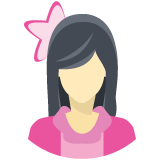E-learning meets the Digital India challenge
Technology:
India is the second biggest e-learning market globally after the US, as per UK-India business Council report.The country’s education sector is undergoing a revolution, thanks to rapid internet penetration and the availability of low-cost mobile and hand-held devices.
Technology playing a major role in multiplying reach and providing access to learning tools and material, this opportunity is being seen as a huge potential for many foreign and domestic training providers offering online education opportunities in the country. Yet efforts are still fragmented and many of the more advanced innovations in online education technology remain the remit of private enterprises.
In an effort to bring rural India in to the digital age, the centre has launched the Digital India campaign. Some of this campaign’s targets include providing broadband connectivity to a quarter of a million rural villages by 2019 and making Wi-Fi connections available in schools, says the report.
So how is this impacting e-learning and digital education provider?
According to Atul Kulshrestha, chairman and managing director, Extramarks, Digital education today is no longer limited to the four walls of a classroom. It has paved way for virtual classrooms, making learning attainable and providing easy access everywhere and every time. This has allowed students to use digital learning as a ‘flipped classroom’ adding considerable value to the manner in which education is imparted. The latest trends in digital education space also include adaptive and collaborative learning where a student is engaged by practising, experiencing, sharing things and gaining knowledge in a collaborative environment. The fourth generation of communication technology is speculated to revolutionize the digital education space by providing cutting-edge user experience.
Today, talk-n-chalk classroom is being replaced by interactive whiteboard with projectors and speakers, which is student centric that breeds immersive learning environment. Reports show that a number of institutions are taking steps to adopt the digital approach to learning. The changed perspective is evident from the fact that all good schools have now switched to Smart Learn Classes as per the current trend. They are no longer rigid in their teaching methodologies.
To support e-learning, we need to spread more awareness amongst the teaching fraternity, students and most importantly parents about the marvels of the digital education space. we have recently launched a pay per use app aimed at making learning engaging through digital learning solutions which include rich multimedia and animations to make learning easy and effective. These learning solutions cover entire CBSE and ICSE board and offer various study options to students which present a synopsis of the entire lesson in a single view. It also offers high order thinking skills questions, virtual lab experiments, solved Board papers, formative discussions, chapter-wise Q&A to substantiate learning with practice. It contains MCQs and quizzes to let students assess themselves at each level for strong understanding about the subject matter. The real time progress can be tracked and a performance report is instantly generated.
To have a positive impact on learning and solve the big educational problems in India, technology is not the only solution that we are looking at. There is need to have a bigger vision of enabling technology to help students learn better and teachers teach better. Therefore, solutions to hurdles like affordability, accessibility, mode of delivery and content are indispensable.
Post Your Comments for this Article
Related News
-
1.5 million jobs in rural India within one year
2017-06-16 11:45:48
-
Mumbai University offers new courses
2017-06-16 10:58:44
-
Mega Education Conclave In Srinagar
2017-05-22 09:53:23
-
Tamil Nadu SSLC Results 2017
2017-05-19 10:11:46








